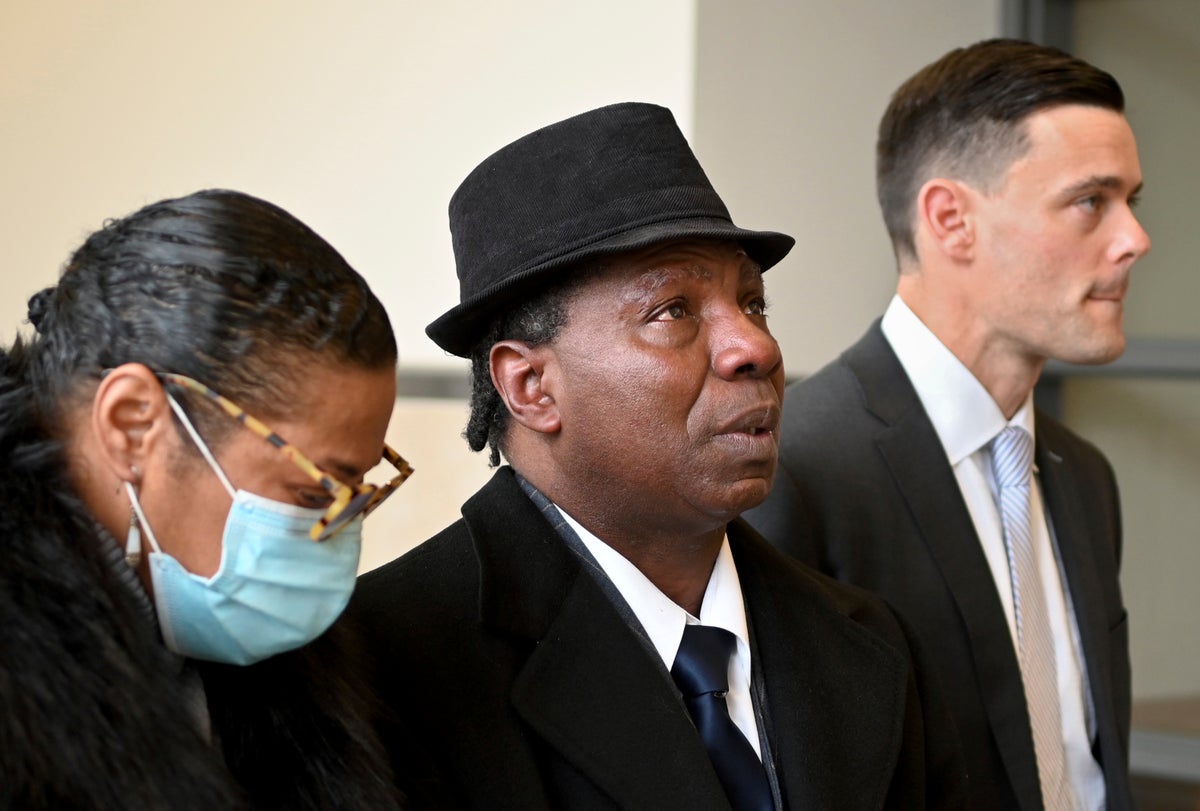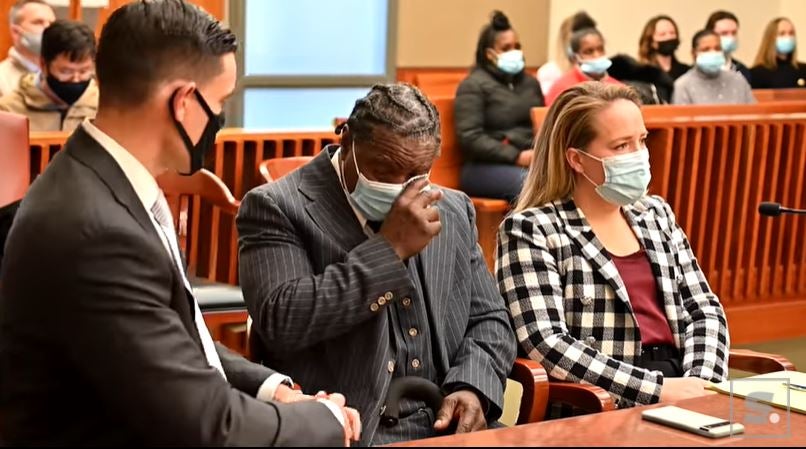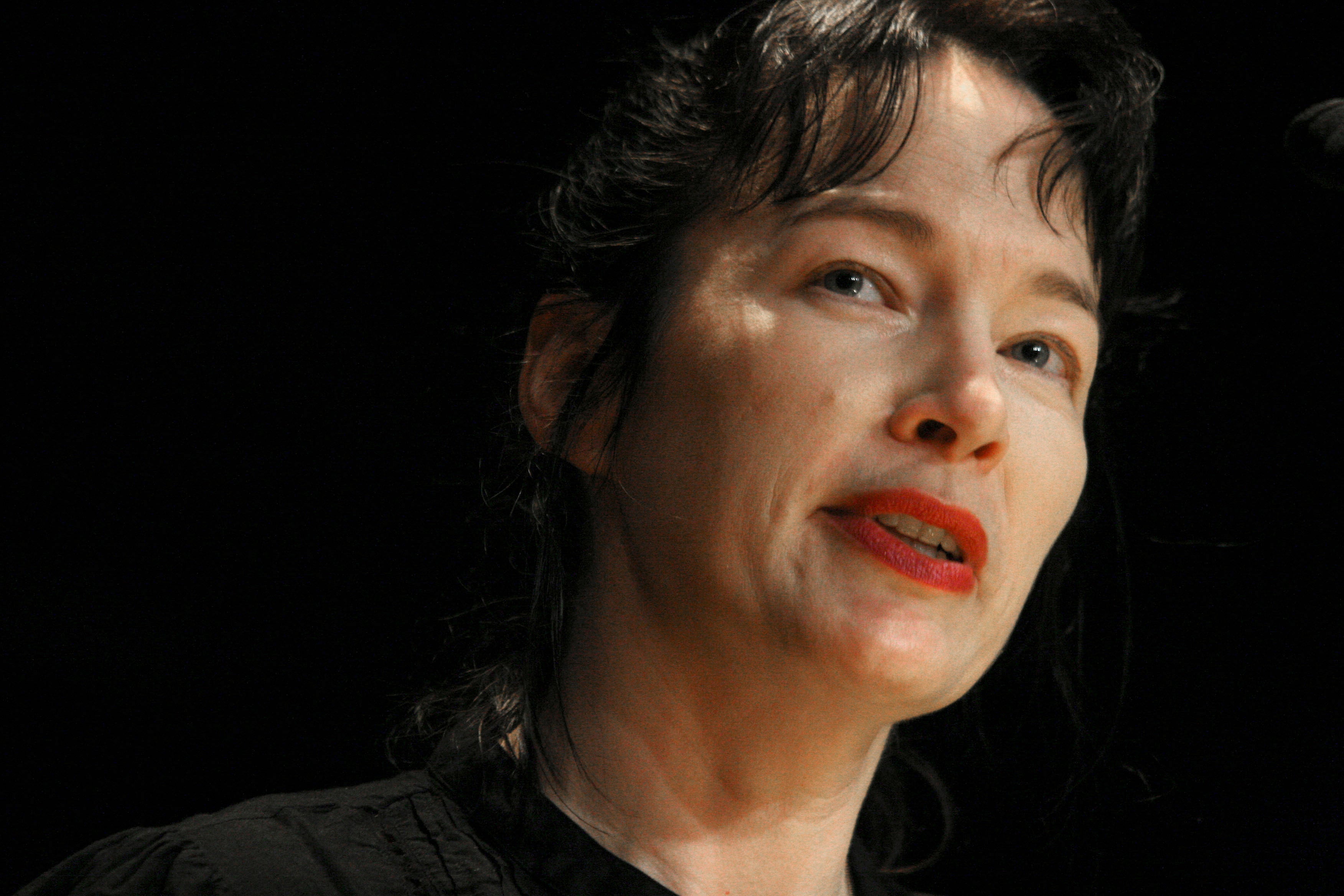
A man who spent 16 years in jail after he was wrongfully convicted of raping writer Alice Sebold in 1981 will be paid $5.5m by New York state in a settlement, his lawyers said.
The settlement would end a decades-old lawsuit against Anthony Broadwater, 62, whose conviction for raping the author was overturned in 2021 in an emotional court hearing where he broke down.
"I appreciate what attorney general James (New York attorney general Letitia James) has done, and I hope and pray that others in my situation can achieve the same measure of justice,” Mr Broadwater said in a statement relayed by his attorney David Hammond. “We all suffer from destroyed lives.”
A New York state court judge concluded that the case against Mr Broadwater was deeply flawed as he was exonerated of the crime in 2021.
Ms Sebold was an 18-year-old, first-year student at Syracuse University when she was raped in a park near the campus in May 1981. She informed the campus security personnel immediately about the attack and went to the police.
She described the chilling details of the attack and the ensuing prosecution in the memoir “Lucky” published in 1999.
She wrote that she saw a Black man in the street months after being raped and was sure that he was her attacker and used the fictitious name Gregory Madison for the person who raped her.
“He was smiling as he approached. He recognized me. It was a stroll in the park to him; he had met an acquaintance on the street,” Ms Sebold wrote of the man she saw in the street. “‘Hey, girl,’ he said. ‘Don’t I know you from somewhere?’”
She described her attacker to the police who created the sketch but it did not resemble Mr Broadwater.

Mr Broadwater, who was 20 years old at the time, had returned home from a stint in the Marines to spend time with his ill father, who died shortly after he was sent to prison.
Mr Broadwater was arrested five months later but she failed to identify him in a police lineup, picking a different man as her attacker. However, she said she realised she made a wrong choice and identified Mr Broadwater in court.
Mr Broadwater was tried and convicted in 1982 after an expert said microscopic hair analysis had tied Mr Broadwater to the crime. That type of analysis has since been deemed junk science by the Department of Justice.
He was released from prison in 1999 but still had to register as a sex offender until his conviction was vacated in November 2021.
His attorney argued that the case relied on Ms Sebold’s identification of him in the court and a discredited method of microscopic hair identification.
William J Fitzpatrick, who is the current district attorney for Onondaga County, the central New York county that includes Syracuse, joined the motion to vacate the conviction, noting that witness identifications, particularly across racial lines, are often unreliable.

In 2021, the case was overturned by Justice Gordon J Cuffy of Supreme Court in Onondaga and he was no longer required to register himself as a sex offender.
Mr Broadwater has also filed a federal civil rights lawsuit against Onondaga County, the city of Syracuse and an assistant district attorney as well as a police officer who were involved in prosecuting him. That case is pending.
The settlement was signed last week by lawyers for Mr Broadwater and Ms James but it has to be approved by a judge before it becomes final.
The author of the bestselling The Lovely Bones apologised to Mr Broadwater in a 2021 statement released to The Associated Press and sent to Mr Broadwater. After the apology was read out loud, he burst into tears.
She wrote that “as a traumatised 18-year-old rape victim, I chose to put my faith in the American legal system. My goal in 1982 was justice – not to perpetuate injustice. And certainly not to forever, and irreparably, alter a young man’s life by the very crime that had altered mine.”
In response, Mr Broadwater accepted her apology but said it is still painful for him because he was wrongfully convicted.
“It comes sincerely from her heart,” Mr Broadwater told Syracuse.com. “She knowingly admits what happened. I accept her apology. It was a big relief. It must have taken a lot of courage to come to terms and make that apology.”







